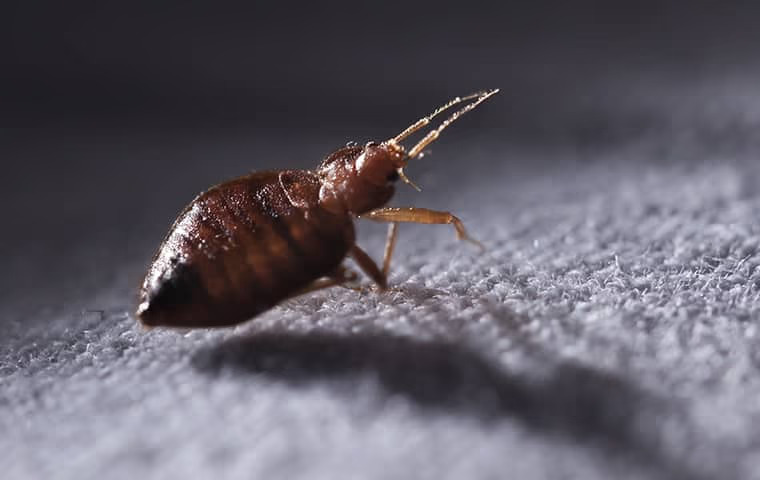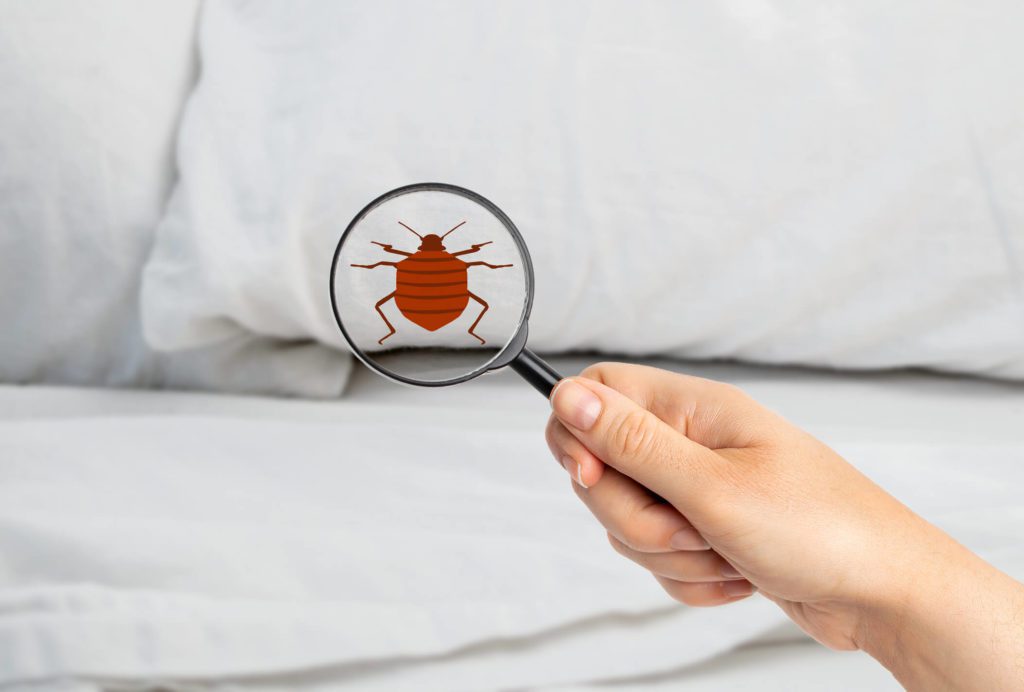Best Kings Bug Control Cincinnati: Premier Pest Control Experts
Best Kings Bug Control Cincinnati: Premier Pest Control Experts
Blog Article
Kinds Of Insect Control: Which Method Is Right for Your Invasion?
When confronted with an insect problem, the selection of an appropriate approach for bug control is important in successfully managing the scenario. From chemical therapies to biological solutions, there exists a range of strategies that can be used to deal with different kinds of insects. Each method comes with its very own set of factors to consider and advantages, making the decision-making process a nuanced one. Understanding the subtleties of each method and reviewing their compatibility with the certain parasite invasion handy is crucial for accomplishing long-term success in bug monitoring. By checking out the various types of parasite control techniques readily available, individuals can make informed decisions customized to their distinct conditions, guaranteeing a much more sustainable and efficient end result in pest removal.
Chemical Pest Control
Chemical bug control entails making use of synthetic or naturally derived chemicals to manage and eradicate pest populations successfully. This technique is generally made use of in farming, forestry, and domestic settings to deal with a large range of bugs, consisting of rats, pests, and weeds. Using chemical pesticides can offer quick and targeted services to pest infestations, making it a popular option for lots of people and services.
One of the essential advantages of chemical pest control is its ability to swiftly remove parasites, lowering the danger of damage to crops, home, and human health and wellness. By utilizing specific chemicals that target certain pests, this method can properly regulate invasions while minimizing injury to valuable organisms and the setting when applied correctly.
Nonetheless, making use of chemical insect control additionally increases problems concerning prospective unfavorable results on non-target types, water sources, and human wellness. It is vital to follow safety and security guidelines, apply chemicals sensibly, and think about alternative bug control methods to decrease these risks and guarantee lasting insect monitoring methods.
Organic Insect Control
Organic insect control, additionally recognized as biocontrol, utilizes living organisms to take care of and lower insect populaces normally. This method takes advantage of the power of nature to control bugs without the need for synthetic chemicals. Biocontrol can involve the intro of all-natural enemies of the bug varieties, such as virus, parasites, or predators, to reduce parasite populations. By utilizing the bug's all-natural predators or microorganisms, organic parasite control offers a sustainable and environmentally friendly option to pest monitoring.

Mechanical Parasite Control
Using hand-operated and physical methods to take care of parasite populaces, mechanical bug control supplies an alternate approach that does not count on using living microorganisms or synthetic chemicals. This technique involves the usage of obstacles, traps, or other gadgets to physically discourage or eliminate parasites. By obstructing parasite entry factors or establishing traps to capture them, mechanical pest control can properly reduce invasions without presenting chemicals into the setting.
One usual example of mechanical bug control is using mesh screens on doors and home windows to avoid pests from entering buildings. This basic yet reliable method serves as a physical obstacle, keeping insects out while permitting correct air flow. In addition, devices like mousetraps, fly swatters, and ultrasonic repellents fall under the mechanical bug control group.
While mechanical pest control methods can be labor-intensive and call for normal surveillance and upkeep, they offer a sustainable and eco-friendly remedy for managing insect infestations. By integrating different mechanical methods, homeowner can develop a comprehensive pest control strategy that minimizes reliance on chemical pesticides.
Physical Parasite Control

Some common physical insect control approaches include the usage of obstacles such as webs or displays to avoid parasite entry, catches to capture and eliminate parasites, weblink and hand-picking to physically eliminate pests from plants or structures. In addition, strategies like heat therapies can be used to manage parasites like bed bugs by elevating the temperature to levels that are dangerous to the pests.
Physical insect control is especially valuable in incorporated pest administration (IPM) approaches, where multiple insect control techniques are incorporated for reliable bug monitoring while lessening making use of chemicals. By using physical bug control strategies, people can successfully resolve pest infestations with very little environmental effect.
Integrated Bug Management
When executing physical bug control techniques as component of bug administration approaches, Integrated Parasite Monitoring (IPM) arises as a comprehensive approach that leverages various techniques to properly control pest populaces. IPM concentrates on lasting avoidance of bugs with a combination of organic, social, physical, and chemical devices tailored to particular insect issues. By integrating multiple control techniques, IPM aims to reduce the risks associated with parasites while additionally minimizing reliance on chemical services.
One key facet of IPM is the focus on tracking and assessing pest populaces to establish the most appropriate control techniques. This proactive strategy permits early treatment and targeted methods, causing much more efficient parasite administration. Additionally, IPM advertises environmentally pleasant methods by prioritizing non-chemical control approaches and just using chemicals as a last hope.
Verdict

By using the pest's great post to read all-natural killers or microorganisms, biological bug control offers a ecologically friendly and sustainable service to pest management. - Kings exterminator cincinnati
Utilizing hand-operated and physical techniques to manage pest populaces, mechanical insect control supplies an alternate technique that does not rely on the usage of living microorganisms or synthetic chemicals.An efficient technique to handling insect populations without relying on chemical or organic methods entails the use of physical parasite control techniques.When implementing physical pest control techniques as part of bug management methods, Integrated Pest Monitoring (IPM) arises as a detailed approach that leverages different strategies to efficiently regulate pest populations. Chemical bug control involves the use of chemicals, biological bug control makes use of natural killers, mechanical pest control includes physical obstacles, physical insect control consists of capturing or navigate to this site removing bugs, and incorporated insect administration incorporates multiple approaches for a holistic method to pest control.
Report this page